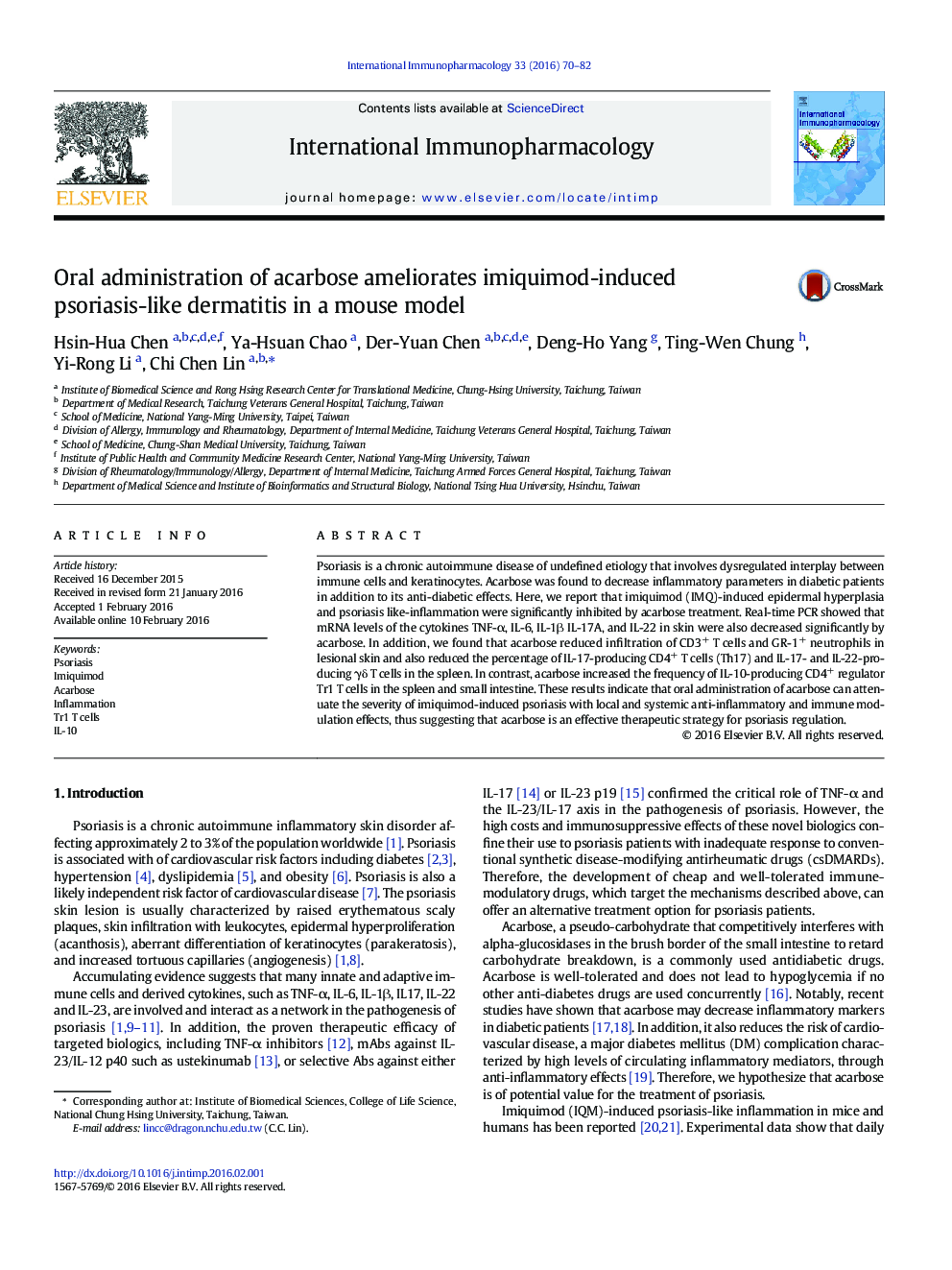| Article ID | Journal | Published Year | Pages | File Type |
|---|---|---|---|---|
| 2540245 | International Immunopharmacology | 2016 | 13 Pages |
•Acarbose ameliorated IMQ-induced epidermal hyperplasia and psoriasis like-inflammation.•Acarbose decreased infiltration of CD3+ T cells and Gr-1+ neutrophils in skin lesions.•Acarbose selectively decreased mRNA expression of pro-inflammatory cytokines in skin lesions.•Acarbose decreased the percentages of Th17 cells and IL-17-/IL-22-producing γδ T cells in the spleen.•Acarbose increased the percentages of IL-10-producing CD4+ Tr1 cells in the spleen and small intestine.
Psoriasis is a chronic autoimmune disease of undefined etiology that involves dysregulated interplay between immune cells and keratinocytes. Acarbose was found to decrease inflammatory parameters in diabetic patients in addition to its anti-diabetic effects. Here, we report that imiquimod (IMQ)-induced epidermal hyperplasia and psoriasis like-inflammation were significantly inhibited by acarbose treatment. Real-time PCR showed that mRNA levels of the cytokines TNF-α, IL-6, IL-1β IL-17A, and IL-22 in skin were also decreased significantly by acarbose. In addition, we found that acarbose reduced infiltration of CD3+ T cells and GR-1+ neutrophils in lesional skin and also reduced the percentage of IL-17-producing CD4+ T cells (Th17) and IL-17- and IL-22-producing γδ T cells in the spleen. In contrast, acarbose increased the frequency of IL-10-producing CD4+ regulator Tr1 T cells in the spleen and small intestine. These results indicate that oral administration of acarbose can attenuate the severity of imiquimod-induced psoriasis with local and systemic anti-inflammatory and immune modulation effects, thus suggesting that acarbose is an effective therapeutic strategy for psoriasis regulation.
